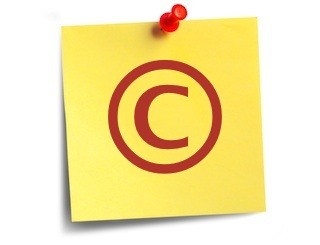Update: Since this blog post, Pinterest has provided an updated Terms of Use that will be effective April 6. You can view the full list of updates here.
If you’re an active pinner, you may have noticed the recent movement to get Pinterest to change the site’s terms of use. Many users panicked, fearing that they could face legal charges for pinning content and demanded a change.
The chief concern among users is the following statement from Pinterest’s terms of use:
You acknowledge and agree that you are solely responsible for all Member Content that you make available through the Site, Application and Services. Accordingly, you represent and warrant that: (i) you either are the sole and exclusive owner of all Member Content that you make available through the Site, Application and Services or you have all rights, licenses, consents and releases that are necessary to grant to Cold Brew Labs the rights in such Member Content.
Unfortunately, for most pinners this isn’t a rule Pinterest set for itself but it is a stipulation set by U.S. Copyright law. According to a conversation Kristen Kowalski (the blogger who started the viral spread of the terms with her blog post about removing some of her pinboards) had with Pinterest CEO Ben Silbermann, the company is trying to figure out how to address the issues of copyright infringement.
In the meantime, what should you or your brand do to protect yourself?
Pin What You Own
Although it may limit the content you can post, the only way to avoid any copyright repercussions (such as lawsuits and monetary penalties) is to share only what you own. This is original content you have created or materials for which you have a license to use. This is particularly important for businesses that use Pinterest commercially. Gonzalo E. Mon, a partner in the advertising law practice at Kelley Drye & Warren, LLP cautions, however, to check the scope of your license before posting.
Ask for “Pin”mission
Before sharing content, contact the source. If there’s something you’ve found online that aligns with your brand’s strategy and you see value in capitalizing on it, simply ask the original creator or license-holder for permission. I’m sure some photographers would be thrilled to sell a piece of their work to a brand for the correct dollar amount, and other designers are happy to share a watermarked version of an image optimized for pinning.
Give Credit Where It’s Due
Straight from Pinterest’s Pin Etiquette: credit your sources. Pinterest suggests linking your pin back to the original source when you post it. This is akin to citations you used in college research papers.
These are just a few options available to concerned pinners. However, I’m not a copyright lawyer. With you or your brand’s integrity on the line, the best option may be to halt all pins until the matter is resolved in order to prevent a pin-centric PR emergency. Pinterest can be a great way for visual brands to share their original content and engage fans, but a brand’s use of the platform must be balanced with an understanding of what you should (and shouldn’t!) pin.
Photo Credit: Mike Tuttle

 As senior vice president at Cookerly, Mike Rieman specializes in building and maintaining relationships with the media and has an excellent track record of landing significant placements in print and broadcast media including USA Today, Wall Street Journal, Bloomberg and Money Magazine.
As senior vice president at Cookerly, Mike Rieman specializes in building and maintaining relationships with the media and has an excellent track record of landing significant placements in print and broadcast media including USA Today, Wall Street Journal, Bloomberg and Money Magazine.

 As vice president of Cookerly, Sheryl Sellaway uses her extensive corporate communications background to lead consumer PR efforts, deliver strategy for marketing programs and share expertise about community initiatives.
As vice president of Cookerly, Sheryl Sellaway uses her extensive corporate communications background to lead consumer PR efforts, deliver strategy for marketing programs and share expertise about community initiatives.
 As design director at Cookerly, Tim serves as the creative lead in the development of branding campaigns, print collateral and digital media for clients across a broad range of industries, including consumer, professional services, healthcare and technology.
As design director at Cookerly, Tim serves as the creative lead in the development of branding campaigns, print collateral and digital media for clients across a broad range of industries, including consumer, professional services, healthcare and technology. As a senior vice president at Cookerly, Matt helps organizations protect and advance their reputations and bottom lines through strategic communications programs. Using creativity, planning and flawless execution, he works with a team to deliver compelling public relations campaigns that produce results and support clients’ business objectives.
As a senior vice president at Cookerly, Matt helps organizations protect and advance their reputations and bottom lines through strategic communications programs. Using creativity, planning and flawless execution, he works with a team to deliver compelling public relations campaigns that produce results and support clients’ business objectives.